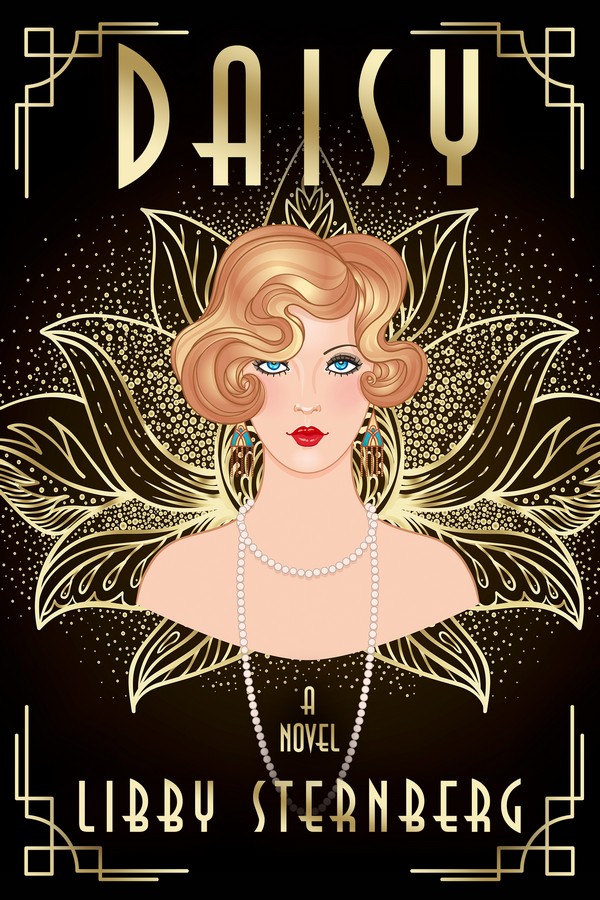AUTHOR
Libby Malin Libby Sternberg Elizabeth Malin
BOOKLIFE PRIZE QUARTER FINALIST
A reimagining of The Great Gatsby from Daisy Buchanan's point of view.
"The author writes with a poised composure that reads like a continuation of Fitzgerald’s prose...(and) reconstructs a timeless American novel by adding compassion to Fitzgerald’s superficial relationships...A delightful portrayal of a female character claiming the story as her own, repossessing her own voice." Publishers Weekly BookLife Prize Contest
"Sternberg tells Daisy's side of the story with signature Fitzgeraldian banter and adds to the source material by imagining what happens off the page during the original tale's events...Sternberg's take on the classic is original and charming." Booklist
"Based on the classic Fitzgerald characters, but assuming a life of its own, Daisy is an exceptional example of a sequel to a classic story. It should be profiled alongside Gatsby as a fitting and memorable adjunct to that tale...While it deserves its own limelight in libraries profiling women's fiction, literature and experiences, Daisy is at its best when read along with The Great Gatsby. Its complimentary and alternative views of those lives and times make it recommended for classroom assignment and book club reading where Gatsby is of special interest and women of the times the focus." D. Donovan, senior reviewer, Midwest Book Review
"You don't have to read the original or be acquainted with Fitzgerald to appreciate this novel for its own sake, with its tight writing, crisp dialogue, and a protagonist with brains, poise, and boldness. Sternberg has created a delicious story, ambitious in scope and absorbing." Norm Goldman, BookPleasures.com
"Must Read. Stunning and beautifully crafted, Daisy is both a love letter to Fitzgerald's original and a fresh and enriching take on the classic... I love this book. It manages to capture the tone and style of Fitzgerald while carving out a deep and rich story of its own." Five stars. Maia Keeley, Reedsy Discovery.
"A fresh take on the Fitzgerald classic, Daisy is an enchanting story with a few new twists..." One Book More
"The thoughts and desires of Daisy Buchanan come to the fore in this well imagined novel. This is more than a retelling from a switch in point of view. The life of a pampered and beautiful yet deeply unhappy young married woman shows the dark side of the Jazz Age in a fresh and provocative telling, marked by some real surprises." Nancy Bilyeau, author of Dreamland.
"Libby Sternberg has created a new novel, based on the familiar plot, retelling The Great Gatsby from the point of view of a female insider. This reframing adds intriguing information, amplifying and recoloring the story. Daisy's vacuous life and her painful growth are portrayed with compassion and nuance. Well-written and totally engaging." Mitchell James Kaplan, author of Rhapsody.
"Few writers can craft a book that draws you in, and even fewer make you wish the story will not end. Libby Sternberg has written such a story...Sternberg has created a character that is fully fleshed out...someone in search of her destiny, as are we all." Karen K. Brees, author of The Esposito Caper.
"Writing with grace and compassion, Ms. Sternberg reveals a much more human Daisy, who cares for the people in her life with a genuine depth of feeling. As she develops Daisy's voice, the reader is pulled into her story to gain a new understanding of not just the literary character but the struggles and confusions women faced in the go-for-broke 1920s. Hearing Daisy's version of the events of that summer in the East and West Egg leaves the reader with a new perspective on, and deeper understanding of, that frenetic time sandwiched between two world wars." Leslie Goetsch, assistant professor of English, George Mason University, and director of the Northern Virginia Writing Project.
"Finally, the story of Gatsby from Daisy's point of view. Wildly energetic and heartfelt, Sternberg's Daisy has the insight and audacity to alter and clarify key elements of Fitzgerald's 1925 novel. The inspiring result is the revitalization of an iconic American tale." John C. Hampsey, professor of British Romanticism, Cal Poly, author of the memoir Kaufman's Hill.
Available this summer and fall from Bancroft Press:
Daisy
by Libby Sternberg
No empty-headed fool, Daisy Buchanan tells her side of the story of that tumultuous summer in the 1920s when she reunites with her first love, Jay Gatsby. Unlike her cousin Nick's recounting, her version tells readers what was in the letter that Jay sent to her on the eve of her wedding to Tom Buchanan that almost had her calling off the ceremony, and who was really driving the car that killed her husband's mistress. Although she wishes sometimes she could be a sprite (akin to the flickering green light at the end of her pier), Daisy comes to realize that charting her own destiny means making hard choices, for herself and her precious daughter.
Now available for e-readers, in print this fall!
Click on links below to order for Kindle, Nook and more.
